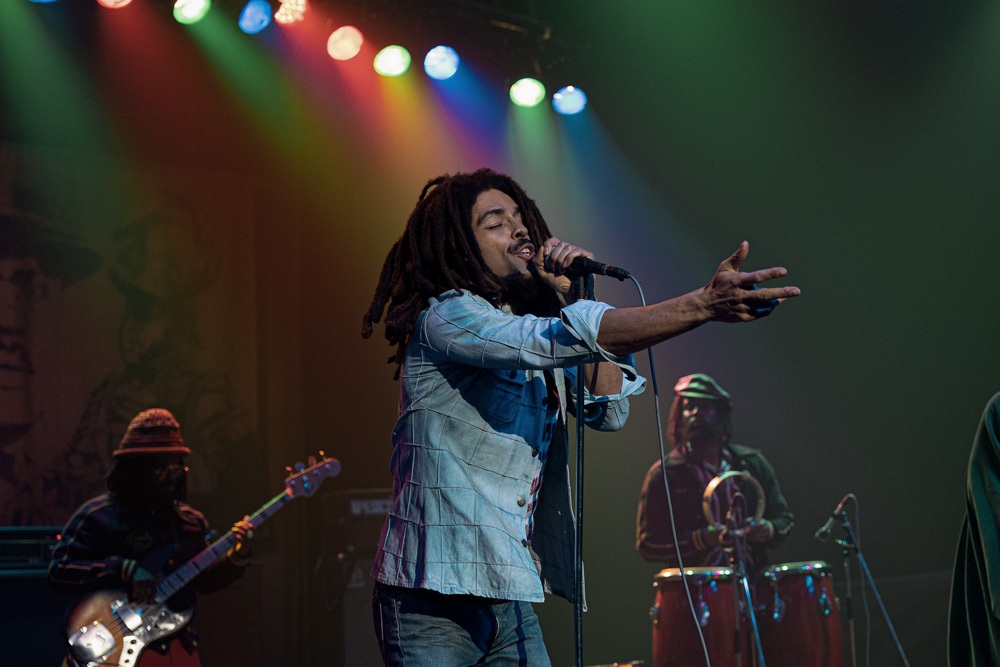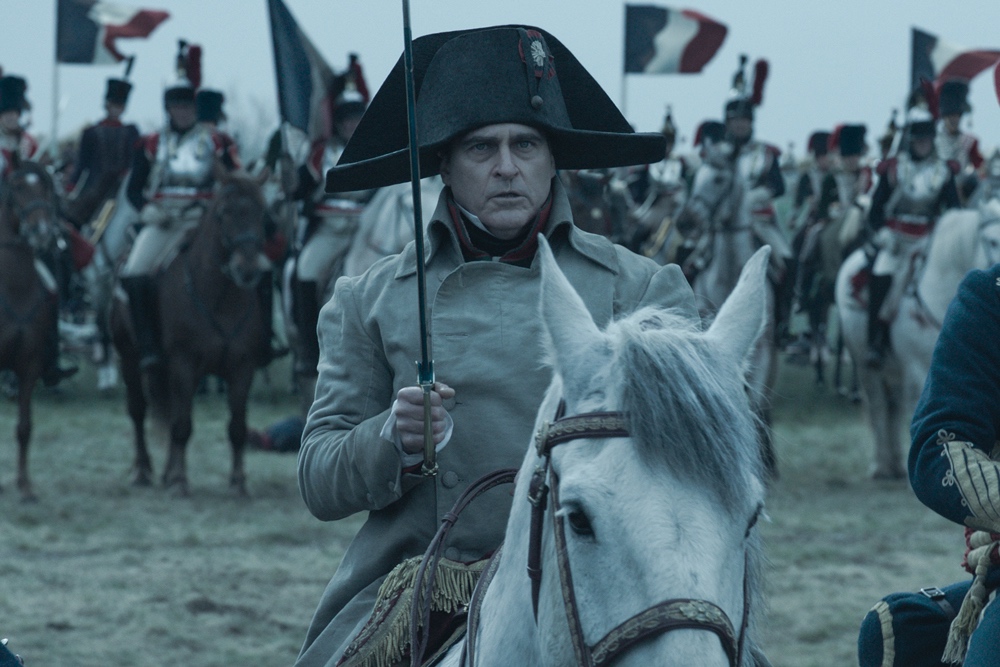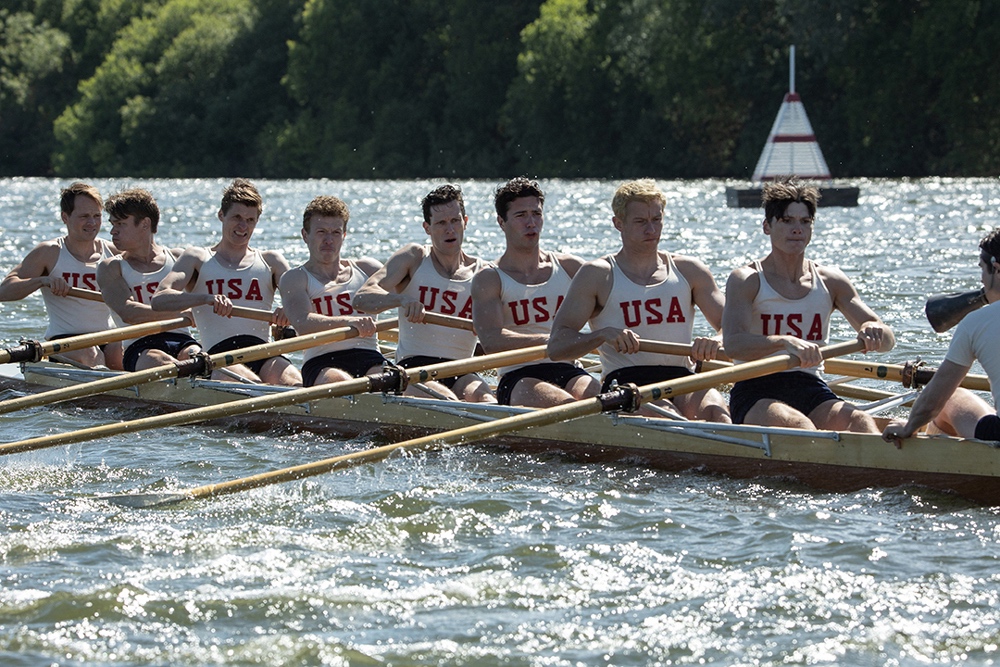This year’s awards season has seen plenty of biographical dramas and historical films. We investigate if these biopics are closer to fact or fiction.
Biopics are a staple of every awards season. Based on real-life events, these films are often assumed to carry an air of gravitas. Yet, like any other creative endeavour, they take artistic licence for various reasons, whether to streamline the story or adjust its pace. We look back at biopics that have made a splash this year and rank them from least to most accurate.

Back to Black
Amy Winehouse, the English soul and R&B singer known for her distinctive sound, died tragically young at age 27 in 2011. The acclaimed documentary film Amy was released in 2015, and for years, a biopic has been in development. Back to Black stars Marisa Abela as Winehouse and Jack O’Connell as her boyfriend Blake Fielder-Civil.
Like many musical biopics, Back to Black simplifies and combines events in its subject’s life while shifting other events around in the narrative timeline. For example, Winehouse’s infamously chaotic Glastonbury set took place in June 2008, and she won the Grammy for Album of the Year in February 2008, but the movie flips the order of these events. The film recreates Winehouse’s performance of “Rehab” at the Grammy Awards but alters her speech, removing her thanking “Blake, incarcerated” because Winehouse’s breakup with Civil-Fielder was portrayed earlier in the movie. The movie glosses over Winehouse’s other romantic relationships. It also omits producer Mark Ronson, a key creative collaborator of Winehouse’s – actor Jeff Tunke was cast in the role, but his scenes were cut.
Many fans contend that the movie paints Winehouse’s father, Mitch (Eddie Marsan), who has been accused of exploiting her fame, in an overly sympathetic light. The real-life Mitch was involved in the movie’s development and famously opposed his characterisation in the documentary Amy.
Accuracy: 2.5/5

Bob Marley: One Love
This movie about the Jamaican reggae icon Bob Marley (Kingsley Ben-Adir) was warmly received by audiences and was a box office success. Marley’s widow Rita and his son Ziggy were closely involved in the production, and while that might bolster the film’s historical accuracy, Bob Marley: One Love still omits many important events. The movie streamlines Marley’s personal life story, as many biopics do. His childhood is covered briefly, leaving out his biological father, Norval, who died when Marley was 10. One Love also leaves out his stepfather and half-siblings. The movie alludes to the affairs that Marley had but doesn’t focus on them and doesn’t mention the children whom he fathered with women apart from Rita. According to Roger Steffens, who has written eight books about Marley and travelled with the artist during his Survival tour, Ben-Adir’s portrayal is markedly more jovial than the real man was. “Every time you see [Ben-Adir] as Bob in the movie, he’s always smiling. Bob didn’t smile a lot. He was a very serious person,” Steffens tells Los Angeles Magazine. Authentic portrayal of the legend or not, the result is a biographical drama that is vibrant, joyful, and inspiring.
Accuracy: 2.5/5

Napoleon
Ridley Scott’s Napoleon, which stars Joaquin Phoenix in the title role, covers a lot of historical ground. To accommodate its narrative sprawl, the Oscar-nominated film condenses, rushes through, and skips over events. Several key battle scenes feature scenarios that were completely made up, including showing Napoleon’s troops firing cannons at the pyramids in Egypt. Napoleon is depicted leading the cavalry charge at the Battle of Waterloo when he was famously sick that day and did not enter the battlefield. Many have also taken issue with the movie’s characterisation of Napoleon as petulant and childish. Additionally, Napoleon was 6 years younger than his wife, but Phoenix is 14 years older than his co-star Vanessa Kirby, who played Joséphine in the movie. Scott has been infamously antagonistic to historians pointing out these and many other inaccuracies, telling them to “get a life”.
Accuracy: 1.5/5
Click here to read more about the historical accuracy of the movie.

The Iron Claw
Writer-director Sean Durkin’s The Iron Claw tells the intensely tragic story of the Von Erich wrestling family. The movie mostly focuses on Kevin Von Erich (Zac Efron), who was one of six brothers. Durkin had to make changes to the true story because the reality was even sadder than what was depicted in the movie, which already contains so much tragedy. The Iron Claw completely omits the youngest Von Erich brother, Chris. David Von Erich’s (Harris Dickinson) personal life, including his divorce from his wife Candy and their daughter’s death of SIDS, is also left out of the movie. The real-life Kevin, while approving of Efron’s portrayal, takes issue with the movie’s depiction of his father, Fritz (Holt McCallany), as a demanding man who puts immense pressure on his sons; Kevin has called his father “an honourable, good man” on the Talk Is Jericho podcast.
Accuracy: 3/5

The Boys in the Boat
Director George Clooney adapted the story of the University of Washington rowing team, chronicled in Daniel James Brown’s book The Boys in the Boat: Nine Americans and Their Epic Quest for Gold at the 1936 Berlin Olympics, for the big screen. “He got the spirit of the story, but I didn’t expect him to transcribe the book,” Brown tells USA Today about Clooney. The team’s journey from underdogs to Olympic champion took three years, but the movie shaves the timeframe down to one. Regardless, it gets many details right, including the effort to raise the US$5,000 that the team needed to travel to Berlin. The dramatic turn of stroke oar rower Don Hume (Jack Mulhern) contracting a respiratory illness on the journey to Berlin by ship is also historically accurate. The movie’s biggest invention is depicting the competition results being determined by a photo finish rather than the judges’ deliberation.
Accuracy: 3.5/5
◀ Go Back



